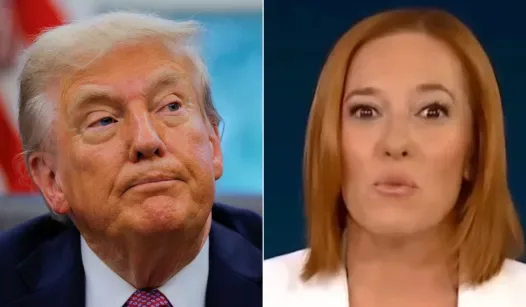The recent uproar surrounding former President Donald Trump’s health has sparked widespread debate, yet it seems to have been met with a surprising lack of critical analysis. Instead of being condemned as unfounded speculation, the frenzy surrounding this topic has been treated as a bizarre cultural phenomenon, garnering attention for its sensationalism rather than its merit.
This phenomenon raises an important question: why are left-wing conspiracy theories often overlooked in mainstream political discourse? While right-wing conspiracy theories have been scrutinized and criticized extensively, their left-wing counterparts frequently slip under the radar, receiving little to no accountability.
In the realm of politics, conspiracy theories can serve as a double-edged sword. On one hand, they can reflect genuine concerns about transparency and accountability in government; on the other, they can perpetuate misinformation and division among the electorate. The disparity in how these theories are treated based on their ideological origins is troubling and merits a thorough examination.
The media landscape is saturated with narratives that cater to various political leanings. In the case of Trump’s health, the sensational coverage often overshadowed the need for responsible journalism. Rather than critically engaging with the claims being made, many outlets chose to amplify the spectacle, drawing in viewers and clicks without addressing the underlying implications of such narratives.
This pattern is not isolated. Throughout the years, we have seen numerous instances where left-wing conspiracy theories have been dismissed or ignored, even when they have gained significant traction among certain groups. From the “Pizzagate” scandal to various unfounded claims about election integrity, the left has its share of conspiracy theories that warrant scrutiny. Yet, the response from both the media and the public often varies significantly compared to similar claims from the right.
One reason for this discrepancy could be the perception of credibility. Many on the left view their ideological opponents as more prone to conspiracy thinking, which can lead to a bias in how information is processed and reported. This bias can create an echo chamber where left-wing theories are either downplayed or dismissed outright, while right-wing theories are subjected to rigorous analysis and critique.
Moreover, the rise of social media has exacerbated this issue. Platforms like Twitter and Facebook have become breeding grounds for both right and left-wing conspiracy theories, yet the algorithms often favor sensationalism over factual reporting. This creates an environment where outrageous claims can gain traction without sufficient pushback, leading to a distorted understanding of political realities.
The implications of ignoring left-wing conspiracy theories are significant. When these narratives go unchecked, they can contribute to a polarized political climate, where dialogue and compromise become increasingly difficult. The failure to confront these theories head-on allows misinformation to flourish and can erode trust in legitimate political discourse.
To foster a healthier political environment, it is crucial for all sides of the political spectrum to engage with conspiracy theories critically, regardless of their origin. This means not only condemning unsubstantiated claims but also holding individuals and media outlets accountable for spreading misinformation.
As citizens, it is our responsibility to seek out diverse perspectives and question the narratives that dominate our political conversations. By doing so, we can work towards a more informed electorate that values truth over sensationalism.
In conclusion, the lack of critical coverage of left-wing conspiracy theories is a gap that needs to be addressed. As we navigate the complexities of modern politics, it is essential to challenge all forms of misinformation and ensure that our political discourse remains grounded in reality. By bringing attention to this issue, we can encourage a more balanced approach to political reporting and foster a healthier democratic process.
